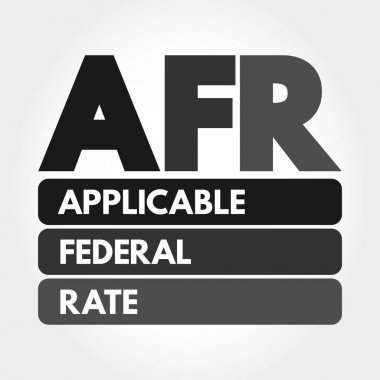President Donald Trump once called America “the highest taxed nation in the world.” He felt that the tax burden on most Americans was severe, and massive tax cuts needed to be made. Statistically, his statement is false since the United States is taxed way lower than some European countries. However, there is some truth in his statement.
Understanding gift tax and loans given to family members and friends might be a tough nut to crack for most outsiders looking in. The thinking is this: if someone is giving someone a gift, why do they have to be taxed for it? It almost seems as if gifting is being discouraged. Far from it.
The Internal Revenue Service’s primary role is to ensure tax compliance. It sets the least value of interest to be charged on loans given to family and friends without paying taxes. These rates are called minimum-interest rules. The Applicable Federal Rate (AFR) is a brilliant example of these rules. The maximum amount of money that can be transferred between family and friends without attracting the IRS’ attention is $10,000.

Even if the loan lender does not charge interest for it, the IRS requires an automatically charged rate on the loan. The point of AFRs is to inhibit too much money transfer between family and friends without taxing. AFRs work independently regardless of the relationship between the two parties.
The AFR is primarily less than current market interest rates. Therefore, going the IRS way saves you money and tax headaches.
Repayment Rates
There are three levels, depending on the time:
Short-term: This applies to loans given to family and friends that should be repaid within three years.
Mid-term: This applies to loans given to family and friends that should be repaid between three and nine years.
Long-term: This applies to loans given to family and friends that should be paid anywhere from nine years.
These rates matter, as the loan with the shortest term, will have lower AFR, while the loan with the longest term may incur higher AFR. If the loan you have received has no time limit, it is considered long-term by default.
When you give a loan to your family or friends, the AFR will begin on the day you sign the loan contract. This same rate will be maintained throughout the entirety of your loan. Despite the IRS publishing the AFR monthly to capture market dynamics, your AFR will remain stable. Therefore, it is best to gift your loved ones money when the AFR is low.
What Minimum-Interest Rules Mean to Borrowers and Lenders
These rules help avoid the trouble of calculating and meeting tax obligations on the gifts you offer your friends and family. To ensure this works out well for you, it is prudent to set an interest rate equal to the current AFR. The IRS will charge tax if the loan’s interest is below the AFR. Therefore, the best thing is to use the current AFR when giving the gift loan.
AFRs are updated monthly as the IRS assesses current conditions.

Non-Adherence to Minimum-Interest Rules
While the whole idea of paying interest for a family loan may sound idiosyncratic, it is illegal not to adhere to IRS rules. For instance, if one completely ignores the rules, they could face additional tax burdens from the IRS. Again, the IRS does not care what relation the borrower is to the lender.
The IRS can calculate how much one should have received as loan interest and, therefore, can charge tax on this. The lender should pay this tax, even if they offered the loan to the borrower at no interest.
Exceptions to Minimum-Interest Rules
The IRS allows for gifts below $10,000 to be exempted from tax. Consider this example: A lady wants to help her brother settle down after a huge economic downturn that wiped out all his income and savings. She gives him a $5,000 gift loan, requiring that it be paid within three months. The brother intends to use the loan to set up a coffee shop.
Naturally, since it is a loan, the money should incur interest. It lies below the $10,000 threshold, meaning there will be no interest rates. However, this exception only works for any other purpose except acquiring assets that will produce profit, such as the coffee shop. Therefore, this loan will incur imputed interest, which the lender must pay.
If the lender gives a gift loan to a family member to purchase a residence, they can do so comfortably without incurring taxes. In this case, the maximum amount of money that can be loaned out is $100,000. That’s not all. In this case, the family member, who is the borrower, should prove that they have not had a job for the past year or that their income has been below $1,000. The borrower can also start a business with this gift loan.
The pinnacle of the matter is that the IRS could exempt any funds given to family or friends with the core understanding that the money will not be repaid. This money should not exceed the yearly gift tax exclusion because the IRS may require taxes if it does.
Are you caught between a rock and a hard place?
Don’t stop your acts of charity just because the IRS will require tax from you. It may seem unfair that you will be charged for an act of good faith. Remember, it is the motive that matters. If you are giving it as a gift, assuming you will not earn any interest from it, you may not pay taxes.
However, if you are giving it as a loan, requiring it to be repaid with interest, the IRS will demand that you pay tax on this increase in income. Generally, if the gift you have received earns any income, you will pay taxes.



